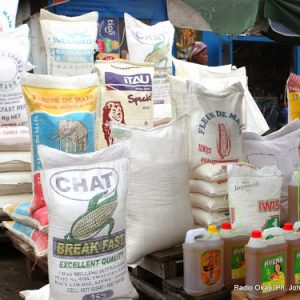2016 was a year of hope for many Congolese citizens who believed that it could be a year of historical moments for the country and for the continent as all. Many citizens hoped the DRC could once be the example in organizing the elections has expected before December 2016 in a continent where everyone tends to cling to power.
Unfortunately the government claimed that due to the lack of funds elections could not be organized by end 2016, a situation which caused tremendous protests during that year and a lot of political tensions. As political tension was going on, there were also many efforts, by the international community, the Catholic Church and national NGOs, to help the country to overcome the crisis which had started to affects many aspects of citizen’s livelihood.
To help Congolese political leaders come out of this impasse, the African Union nominated a facilitator, to help those actors in convening a national dialogue that could help actors from the majority/opposition and the civil society get together in order to find out best ways to handle the crisis; but this failed to prevent a popular uprising that was younger and stronger than expected[1]. These accords concluded during that first national dialogue did not succeeded in silencing the radical side of the political parties rallied together around the leadership of Etienne Tshisekedi[2] a prominent opposition leader. As the situation went unchanged to the lack of agreement among all the parties and international sanctions and pressures were increasing, a second national dialogue were held under the mediation of the catholic church which led to political agreements signed on the New Year’s Eve. This has given some renewed hope for a peaceful transition however there’re still flaws in its drafting that are likely to hamper its implementation considerably[3].
The political uncertainty caused by the delayed elections has however impacted negatively on the social and economic aspects of the DR Congo, in a sense where, all state institutions have gone beyond their constitutional and legal mandate, (such as the provincial assemblies, the national parliament, the senate, the provincial governors and of course the presidency;) and where economic investors are afraid to invest as long as the political crisis persists. On a security level, the failure to hold elections resulted in rebellions pushing incivist religious sects and rebel groups to terrorize the populations in order to make their claims be heard.
The most palpable consequences are on social and economic side. The ongoing political uncertainty is driving investors away, causing the currency to devaluate, making the price of basic foods to increase and making job opportunities for young men and women more difficult.
One can also, look at the risk of popular uprising as the livelihood of citizens remain unchanged while the government is too busy to respond to the needs and interests of political actors seeking to share power during the political transition.
The ordinary citizen is watching powerlessly to the deterioration of road and other infrastructures, how public servants and high school teachers are not decently paid, how some banks are closing unable to survive without government help, adding to that the rising fuel prices and all forms of impunity increases day by day.
The Congolese political leaders would perhaps come out of this political crisis by putting the interests of the country first and working together to fulfill his long-time dream of a truly peaceful and democratic political transition which will guaranty the social and economic development of its nation.
[1] Gerard Gerold, et Thomas Sullivan, République Démocratique du Congo : une alternance pacifique est-elle encore possible ? Fondation pour la recherche Stratégique, 16 Février 2017 ; Page 2
[2] Ida Swayer, Congolese Mourn Death of Prominent Opposition Leader, 15 February 2017
[3] Gerard Gerold, et Thomas Sullivan, République Démocratique du Congo : une alternance pacifique est-elle encore possible ? Fondation pour la recherche Stratégique, 16 Février 2017 ; Page 2
